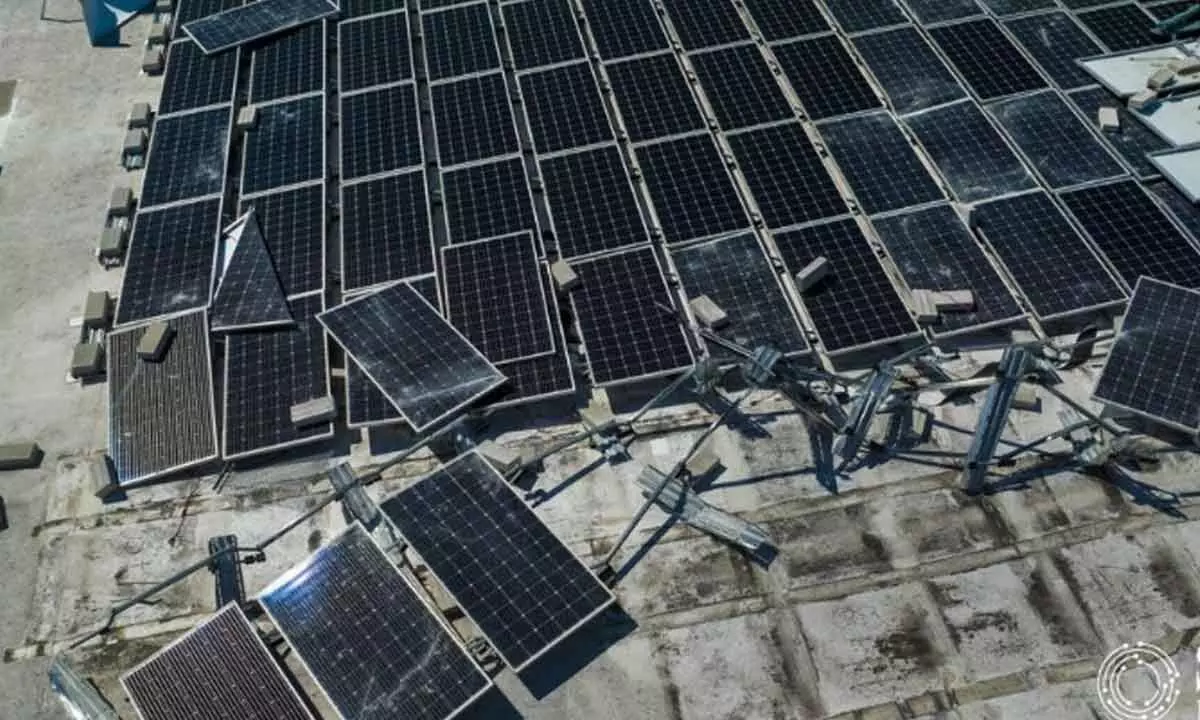India's solar waste may reach 600 kilotonnes by 2030

The solar waste will increase to about 19,000 kilotonnes by 2050; 77 per cent of it will arise from new capacities
New Delhi: India's solar waste could reach a staggering 600 kilotonnes by 2030 — equivalent to filling up 720 Olympic-size swimming pools — according to a new study released on Wednesday.
The study by the Ministry of New and Renewable Energy and independent think tank Council on Energy, Environment and Water (CEEW) said around 67 per cent of this waste will come from five states: Rajasthan, Gujarat, Karnataka, Andhra Pradesh, and Tamil Nadu. India's current installed 66.7 GW capacity (as of FY23) has already generated about 100 kilotonnes of waste, which will increase to 340 kilotonnes by 2030.
This will include about 10 kilotonnes of silicon, 12-18 tonnes of silver, and 16 tonnes of cadmium and tellurium — the majority of which are critical minerals for India, the study titled "Enabling a Circular Economy in India's Solar Industry: Assessing the Solar Waste Quantum" said. Recycling solar waste to recover these materials will reduce import dependency and enhance India's mineral security. The study found that the rest of the 260 kilotonnes of waste will come from new capacity that will be deployed in this decade (from 2024 to 2030).
The solar waste will increase to about 19,000 kilotonnes by 2050; 77 per cent of which will arise from new capacities, CEEW said, adding this is an opportunity for India to emerge as a leading hub of
circular economy for the solar industry and ensure resilient solar supply chains. India plans to amass around 292 gigawatt of solar capacity by 2030, making solar PV waste management crucial for environmental, economic, and social reasons.
The study, conducted under Niti Aayog's Action Plan for Circular Economy - Solar Panels, for the first time, estimates India-specific solar waste generation from various streams, excluding manufacturing. This information is crucial for creating data-driven waste management policies. India is already implementing several measures to tackle the waste.








